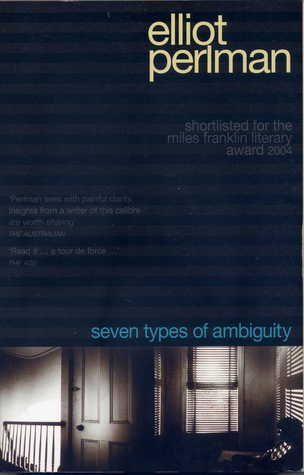What do you think?
Rate this book


607 pages, Paperback
First published January 1, 2003
1. Alex, the Compromised PsychiatristEach of the characters is in some way involved in the plot and provides insight into his character and the characters with whom he interacts. The exception to this is Rachael, who has nothing to do with the story at all. Rachael’s chapter seems only to exist to push forth Perlman’s views on moral ambiguity and on what constitutes mental health. Rachael’s account feels out of place, and it is written from a future perspective which gives the characters a form of closure that does not suit them. Their futures, along with their moral certitude, should remain as ambiguous as it was in the rest of the book.
2. Joe, the Shallow Adulterer
3. Angelique, the Selfless Prostitute
4. Mitch, the Unstable Analyst
5. Simon, the Insightful Kidnapper
6. Anna, the Perpetual Victim
7. Rachael, the Unlikely Epiloguer
Maslow’s Hierarchy of Needs [Maslow, A. H. (1943). “A Theory of Human Motivation,” Psychological Review 50(4): 370–96.]
His second novel, Seven Types of Ambiguity, was a national bestseller in France where it was described as 'one of the best novels of recent years, a complete success' (Le Monde). In Germany it was called a 'literary sensation' (Deutschlandradio), 'an impressive, iridescent all-encompassing view of feeling' (Der Spiegel), and described as having "the virtues of the great modern European novel' (Süddeutsche Zeitung).